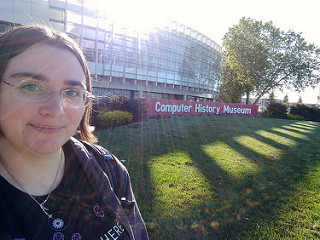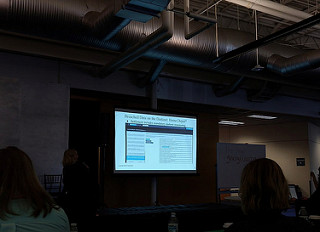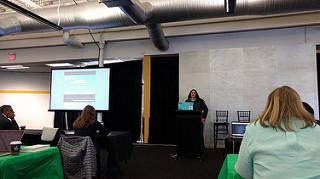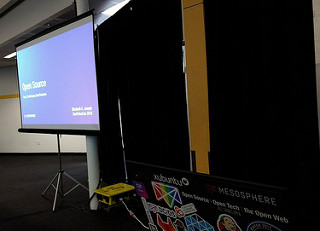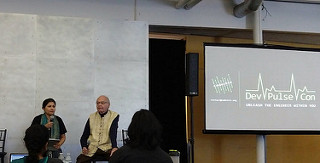A few weeks ago I was fortunate enough to participate in DevPulseCon, a conference from women in software engineering in Mountain View. I attended my first DevPulseCon last year and really enjoyed the talks, and the panels in the afternoon that were kept private only to attendees. The freedom to be open and honest during panels on topics that impact women in technical roles was incredibly valuable. Plus, it’s held at the Computer History Museum!
This year the conference began with a talk by Sarah Cortes who took us on a little tour of the DarkNet to demonstrate how early detection of data being traded and sold there can give you an early warning as to when your data has been leaked. Notably, she talked about the Home Depot settlement which included as part of their security improvements, a requirement for the company to monitor DarkNet sources for their data. This is some pretty forward-thinking strategy from the court, I’m really impressed that such recommendations have started coming down. She also introduced us to some of the tooling that exists for password cracking and service intrusion, advising that software engineers need to be familiar with these tools so they can write systems that are not vulnerable to them. Intruders come in where ever they can, even something as simple as a point of sale system can be an attack vector.
Gloria W. joined the event again this year to give us the latest state of the Internet of Things world. She described some of the landscape and major players in the space, and did a demo with a Raspberry Pi and Matrix Voice.
Meng Chow of VMware took the stage next to give a talk that was very complementary to the one I was giving after lunch, hers was titled “4 Vital Steps to Open Source Success” and she walked through the four steps companies and other organizations need to take to succeed in open source:
- Understand licensing
- Use open source responsibly
- Collaborate with the open source community
- Ensure open source compliance
I was very glad she covered licensing, I had a licensing slide in my own talk, but she covered all the important bits so I was able to focus on the more on the human parts of getting involved with open source, which I did after lunch in my “Open Source: Tools, Techniques, Best Practices” talk (PDF slides here).
My talk was a pretty basic introduction to contributing, and I strove to demystify some of the things that are obvious to us open source veterans. Don’t be intimidated by the Mailman 2 UI, IRC is not that scary, bug trackers vary but have the same basic information, conflation of Git with GitHub. I also talked a bit about etiquette, writing good bug reports and how to determine which “identity” to use when signing up for accounts using an email address (work or personal?). I enjoyed writing and giving this talk a lot, I hope I find an opportunity to use it again soon.
The big draw for the day was a Q&A with Donald Knuth, conducted by the founder of CodeChix, Rupa Dachere. I think my favorite advice that he had to give from this Q&A was to have fun and learn to never be bored. It’s something I’ve always taken to heart, I have so many projects to do and books to read, boredom hasn’t been a part of my life for a very long time.
The afternoon was mostly panels, covering topics like career paths and salary negotiation. Like last year, the honesty expressed during these panels due to the knowledge that the content wouldn’t be spread beyond that room was valuable. This year they also allowed men to attend the event, which means several of the panels had a man on it to give insight into how their experiences differed from those of women on the panel.
Thanks to Rupa and the CodeChix crew for putting on this conference and inviting me to participate again this year, I also had a lovely time meeting new people and catching up with others I hadn’t seen in some time.
More photos from DevPulseCon here: https://www.flickr.com/photos/pleia2/albums/72157692733907902


